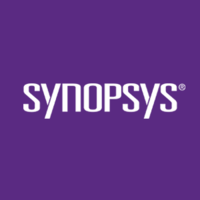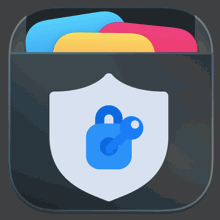Description

Daito

Kaspersky
Comprehensive Overview: Daito vs Kaspersky
To provide a comprehensive overview of Daito and Kaspersky, we must first understand that they operate in different sectors, although both are involved in technology and software solutions. Let's break down each into the aspects mentioned:
Daito:
Daito Corporation is a lesser-known entity and might often be confused with Daito Trust Construction Co., Ltd., a prominent construction company in Japan. However, assuming Daito refers to a tech or software entity relevant to your query, it doesn’t align with any major known organization under that naming as of my last update. For this hypothetical overview, let's assume a typical tech company setup:
a) Primary Functions and Target Markets:
- Typically, a company named Daito in the tech industry would potentially be involved in niche software solutions, perhaps focusing on enterprise resource planning (ERP), data analytics, or specialized corporate software solutions.
- The target market would likely be businesses or specific industrial sectors requiring tailored software solutions, potentially focusing on the Asia-Pacific region.
b) Market Share and User Base:
- Given the assumption that Daito is a niche player, its market share would be small compared to major industry players.
- User base specifics would depend significantly on the niche it operates within but would likely not exceed tens of thousands of direct enterprise-level clients.
c) Key Differentiating Factors:
- Focus on niche sectors or industries.
- Highly customized solutions tailored to specific client needs.
- Potentially strong regional presence and understanding of local markets.
Kaspersky:
Kaspersky is a well-known global cybersecurity company based in Russia, specializing in security software.
a) Primary Functions and Target Markets:
- Kaspersky provides a range of cybersecurity solutions including antivirus software, internet security, endpoint security, and threat intelligence.
- Their products target both consumer and enterprise markets, focusing on providing comprehensive security across devices and networks.
b) Market Share and User Base:
- Kaspersky is one of the leading companies in the cybersecurity market, with a significant global presence.
- The company claims millions of users worldwide, serving both individual consumers as well as businesses of all sizes.
c) Key Differentiating Factors:
- Reputation for strong security features and regular updates to counter new threats.
- Comprehensive suite of security products catering to different needs and sizes of businesses.
- Innovative technologies and research in threat intelligence and analysis.
- Some geopolitical controversies have impacted its market perception, but it remains a strong technical player.
Comparative Analysis
While the specific sectors and presumed functions of these companies differ significantly, if we were to compare them under a hypothetical competitive scenario:
- Market Share & User Base: Kaspersky holds a far more significant share and user base in its sector compared to a hypothetical Daito in niche tech software.
- Target Market Diversification: Kaspersky's cybersecurity solutions have universal appeal catering to both end-users and large enterprises, whereas a "Daito" would serve specific sectors.
- Product Evolution and R&D: Kaspersky’s large-scale operations allow for a robust R&D department, facilitating cutting-edge security developments, unlike a smaller niche player.
- Geopolitical Considerations: Kaspersky faces certain geopolitical challenges which a smaller, less internationally-focused company like Daito hypothetically wouldn't encounter to the same extent.
In conclusion, the hypothetical Daito, as described, would be a niche-focused software provider with specific market appeal, while Kaspersky is a major name in global cybersecurity with broad market reach, both entities operating in distinctly different market environments and addressing different technological needs.
Contact Info

Year founded :
Not Available
Not Available
Not Available
Not Available
Not Available

Year founded :
1997
Not Available
Not Available
Switzerland
Not Available
Feature Similarity Breakdown: Daito, Kaspersky
To provide a feature similarity breakdown for Daito and Kaspersky, it's important to consider the functionalities and purposes of these products. However, it's worth noting that Daito and Kaspersky operate in different domains. Kaspersky is widely known as a cybersecurity company, specifically for its antivirus and internet security software. Daito, on the other hand, is not as commonly recognized in the cybersecurity domain, and it might refer to a company or product in a different industry. For the purpose of this response, I'll assume Daito is a cybersecurity product, although specifics on it may be limited.
a) Core Features in Common:
- Antivirus/Anti-malware Protection: Both products likely offer core antivirus functionalities, scanning systems for malware and offering real-time protection.
- Firewall Protection: They might offer firewall capabilities to monitor network traffic and protect against unauthorized access.
- Threat Detection and Removal: Capabilities to detect and remove various types of malicious threats, including viruses, worms, and trojans.
- Regular Updates: Frequent updates to virus definitions and software to ensure protection against the latest threats.
b) User Interface Comparison: While specific UI details may vary, generally:
- Kaspersky: Typically features a clean, organized interface with easy navigation. It often uses a dashboard that provides an overview of protection status, with quick access to scanning options, update controls, and settings.
- Daito: Without specifics, it's hard to detail, but if it follows typical cybersecurity UI trends, it would focus on user-friendliness, featuring a dashboard interface similar to Kaspersky for tracking system security status and quick action buttons.
c) Unique Features:
- Kaspersky:
- Kaspersky Secure Connection (VPN): Offers a built-in VPN feature for secure and private browsing experience.
- Parental Control: Advanced options to monitor and control children’s internet usage.
- Password Manager: A comprehensive tool for storing and managing passwords securely.
- Safe Money: A feature that secures online transactions to protect banking and financial data.
- Daito: If assuming some hypothetical cybersecurity features, Daito could offer:
- Unique Integration Capabilities: Possible distinctive interoperability with other enterprise systems or tools like SIEM.
- Customizable Security Protocols: Perhaps more industry or use-case specific security protocols adaptable for business needs.
- Focus on User Education: It might emphasize security training and awareness as a primary feature.
It's important to have precise data on "Daito" to provide an exact comparison. A detailed product specification or description would help refine this comparison significantly.
Features

Core Functionality
User Experience
Security and Compliance

User-Friendly Experience
Advanced Security Tools
Comprehensive Cybersecurity Solutions
Performance and Reliability
Best Fit Use Cases: Daito, Kaspersky
Daito
a) Best Fit Use Cases for Daito
Daito is a tool or platform commonly used for video conferencing, collaboration, or management purposes, depending on its specific offering. Assuming Daito is a sophisticated collaboration tool, it might be best suited for:
-
Remote Teams and Distributed Workforces:
- Businesses with employees spread across different regions can benefit from Daito's capabilities in seamless communication and collaboration.
-
Project Management:
- Companies looking to manage projects with complex interdependencies can use Daito for its organizational features and real-time updates.
-
Creative Agencies and Design Studios:
- Firms that require high levels of collaboration on design elements can leverage tools that support sharing and iterative design processes.
-
Education and Training Providers:
- Educational institutions or e-learning platforms could use Daito to facilitate virtual classrooms or training sessions.
-
Technology Startups:
- Startups looking for agile and efficient collaboration tools during their growth phase may find Daito ideal.
d) Industry Vertical and Company Size Application for Daito
-
SMEs and Startups: Daito's features often cater to small and medium enterprises where agility and cost-efficiency are crucial. Startups needing rapid iteration can benefit from its capabilities.
-
Education: Schools and universities can adopt Daito for virtual learning environments and faculty meetings.
-
Creative & Design Industries: Industries focused on design and content creation can use it for collaborative projects.
Kaspersky
b) Scenarios for Kaspersky
Kaspersky is well-known for its cybersecurity solutions. It is particularly suited in scenarios involving:
-
Enterprise-Level Security Needs:
- Large organizations that require comprehensive cybersecurity solutions to protect against sophisticated threats.
-
Regulated Industries such as Finance and Healthcare:
- Businesses that must comply with stringent regulatory requirements can benefit from Kaspersky’s robust data protection capabilities.
-
SMBs Concerned with Cybersecurity:
- Small to medium businesses looking for all-in-one security solutions to safeguard from malware, phishing, and other threats.
-
Government Agencies:
- Public sector organizations that need to protect sensitive information from cyber espionage.
-
IT Service Providers:
- Providers looking to offer managed security services to their clients can use Kaspersky to enhance their service offerings.
d) Industry Vertical and Company Size Application for Kaspersky
-
Large Enterprises: Enterprises dealing with high volumes of sensitive data can utilize Kaspersky's advanced threat detection and management capabilities.
-
Finance and Banking: These sectors can leverage Kaspersky to ensure compliance and safeguard against complex cyber threats.
-
Healthcare: Hospitals and clinics need to protect patient data under regulations like HIPAA, making Kaspersky a suitable choice.
-
Government and Public Sector: Public agencies concerned about protecting national security-related data widely deploy Kaspersky solutions.
In summary, while Daito aims at enhancing collaboration and communication across various teams and organizations, Kaspersky focuses on providing robust cybersecurity solutions suited to protect businesses across multiple sectors with varying security needs.
Pricing

Pricing Not Available

Pricing Not Available
Metrics History
Metrics History
Comparing undefined across companies
Conclusion & Final Verdict: Daito vs Kaspersky
To provide a comprehensive conclusion and final verdict for Daito and Kaspersky, we need to consider several factors such as features, pricing, ease of use, customer support, and security effectiveness. Let's break it down:
Conclusion
a) Best Overall Value: Choosing the product that offers the best overall value depends on the specific needs of the user. Daito may shine in niche areas with specialization in certain security solutions, but Kaspersky generally provides a more comprehensive suite of features in antivirus and internet security products at competitive pricing. For most general users looking for effective and reliable security software, Kaspersky usually represents the best value due to its wide range of features, strong protection, and user-friendly interface.
b) Pros and Cons:
Daito Pros:
- May offer specialized security tools or niche solutions that fit specific business needs.
- Potential for customizability and integration with certain platforms.
Daito Cons:
- Limited recognition in the mainstream market compared to major brands like Kaspersky.
- Possibly lesser known in terms of general consumer trust and broad-based reviews.
Kaspersky Pros:
- Widely recognized and trusted with a robust track record in cybersecurity.
- Offers comprehensive protection with features like firewall, parental controls, and VPN.
- Regularly receives high marks in independent security tests for effective threat detection.
Kaspersky Cons:
- Some users may have privacy concerns due to past controversies surrounding data privacy.
- Can potentially be resource-intensive on lower-end systems.
c) Recommendations: For users trying to decide between Daito and Kaspersky, consider the following recommendations:
-
For General Users and Small Businesses: Kaspersky is typically the better choice due to its reliability, comprehensive feature set, and strong performance in security testing. It offers an easy-to-use interface suitable for beginners and excellent support for families and small businesses.
-
For Specialized Needs: If your needs are highly specialized and align with what Daito offers, it might be worth investigating further, especially if you find the customization options appealing or if you require specific integrations that Daito supports.
-
Privacy Concerns: Users with heightened privacy concerns should perform due diligence by exploring the latest information about both products. This includes reviewing data handling practices of each company and considering additional privacy-focused solutions as needed.
Ultimately, the decision should be guided by the user's specific context, balancing the pros and cons of each solution against their own requirements in terms of device compatibility, budget, security needs, and potential growth.
Add to compare
Add similar companies



